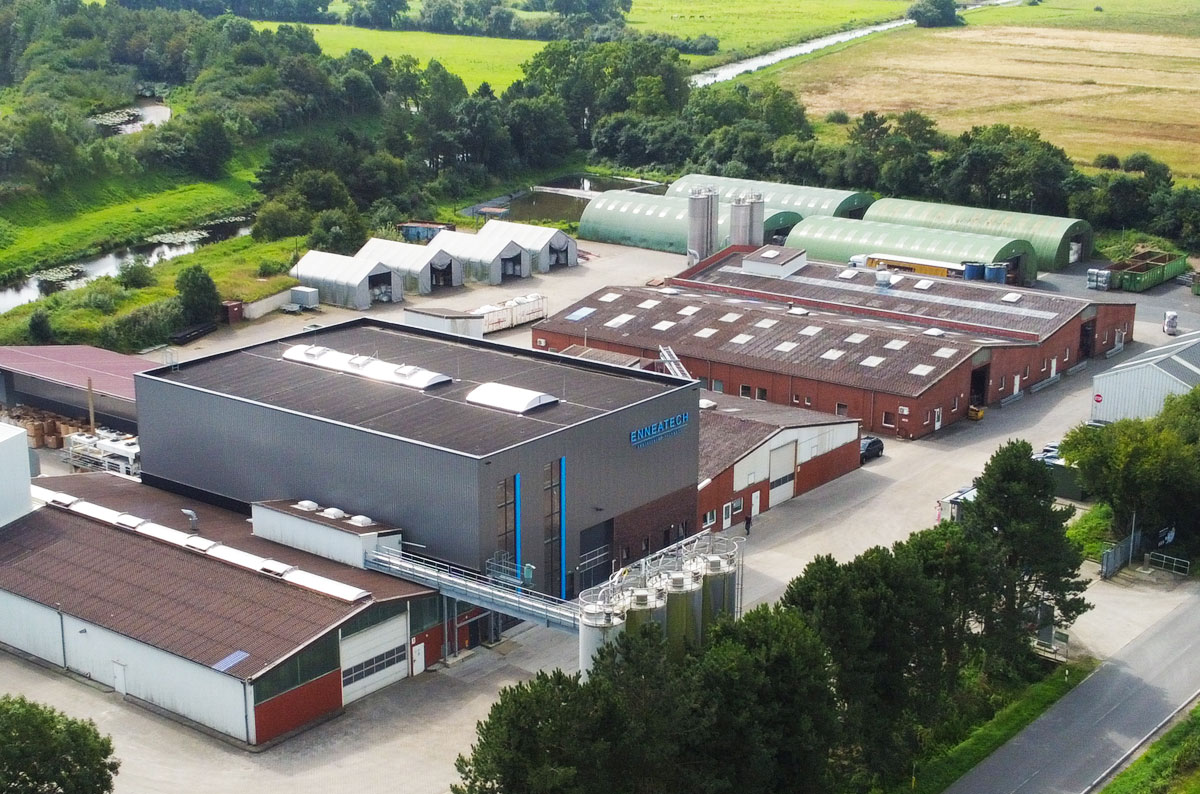Without certification as a specialist disposal company for plastic waste, Enneatech would also not be able to produce PA recyclate. Because one is directly linked to the other: German legislation defines the term recyclate as a secondary raw material obtained through the recovery of waste or produced during the disposal of waste. That is why every plastics recycling company must also be a specialist disposal company, because according to the law, new products are from the waste.
But what does the term “specialist waste management company” (abbreviated to EfB in German) actually mean? This is defined in § 56 para. 2 of the Closed Substance Cycle Waste Management Act (KrWG). The requirements are described in the Ordinance on Specialised Waste Management Companies (EfbV). Accordingly, a company or part of a company is only an EfB if it can show that it has the corresponding certification.
Similar to ISO 9001 certification, independent auditors check whether all requirements for the EfB certificate have been met. This includes, for example, evidence demonstrating the professional competence and expertise of the employees as well as the certification showing the reliability of the company management and executives. Adequate insurance cover for the company is also essential. Work procedures must be set down in writing and an annual plan for the necessary staff training must be available. The training package at Enneatech has it all. Here are a few examples: Every two years, the two waste officers have to refresh their knowledge, the three safety officers have to take refresher training every three to five years and the 14 first aiders every two years. Every year, one employee improves his expertise in order to ensure the necessary hygiene and safety standards in the recooling plant and the wet scrubber where biocides are used. In November 2023, two more employees will be added to ensure that a specialist is on hand during every shift to provide the necessary knowledge. A disposal certificate must be available for all substances and materials that arise in everyday production. This includes laboratory chemicals, packaging material, old electrical appliances and the like.

However, the certification focuses on the question of proper recycling of the waste. Is it regranulate or recompound that is being produced from the waste and is the plant required for this available and approved in accordance with the Federal Immission Control Act? To answer these questions, the inspectors scrutinise the material flows, the complete documentation and the machines. An important instrument in this context is the company operations diary. Here Enneatech records information about the type, quantity, origin and whereabouts of the plastic waste and documents what happens to it.
Certification as a specialised waste management company always focuses on specific activities. Enneatech is dedicated to storing, treating, recycling, trading and brokering. The collection, transport and disposal of waste are not part of the process — Enneatech is looking to produce high-quality polyamide from the plastic waste.
Suppliers also benefit from certification as a specialist waste management company. Enneatech is allowed to issue them with a recycling certificate for their waste — an important piece of the puzzle on the way to zero waste.
Every year, three employees at Enneatech take care of the certification process. Re-certification takes place every three years, with control audits in the two years in between. Those responsible have the procedure fully under control, because this polyamide specialist has been going through this process since its foundation. It has been awarded the seal of approval as a certified waste management company year after year since that time.
